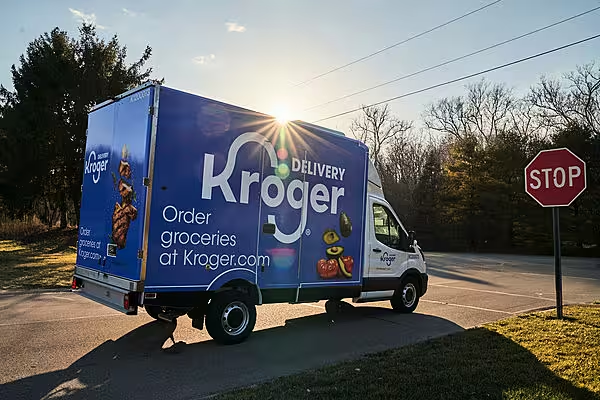Kevin Donnelly, managing director, Britvic Soft Drinks Ireland, and chair of the PCF council, reports on how the prepared consumer foods sector is coping with current market conditions and on innovations that will future-proof the sector.
Ireland’s food and beverage sector is responsible for the employment of a quarter of a million people and generates turnover of €28 billion each year – €15 billion domestically and €13 billion in exports.
The Prepared Consumer Foods (PCF) sector contributes greatly to the makeup of our agri-food sector, both at home and abroad, and accounted for €2.5 billion in exports in 2021.
The UK remains our single most valuable export market, at 68%, with 24% going to the EU27 and 8% to the rest of the world.
As our closest market, and despite the frictions created by Brexit, the cultural similarities, common language, and familiarity suggest that the UK will continue to be the first and the main market for a lot of smaller PCF companies embarking on an export journey.
Unprecedented Challenges
The last few years have been extremely challenging for PCF businesses, with COVID-19, Brexit, supply chain disruption, cost inflation, and labour market pressures.
Cost pressures experienced across the food and drink industry are severe, unprecedented, and impacting on virtually all inputs.
A recent survey from Food Drink Ireland found that most of the food and drink companies are experiencing ‘once-in-a-generation’ increases across a range of inputs, such as raw materials, energy, packaging, transport, and shipping.
Looking ahead to the second half of 2022, food and beverage companies most commonly cited food commodities, energy and labour as the areas where cost inflation pressure will intensify.
International and CSO statistics are showing that cost inflation and shortages of key inputs are worsening.
While food and drink manufacturers work tirelessly to absorb increases within their businesses, rising inflation in commodity prices can quickly erode producers’ margins.
With the recent increases in food inflation and likely future increases, it is inevitable that food and beverage companies will need to further recover costs in the marketplace.
Talent
Food manufacturing is in competition with other sectors for skilled labour at all levels.
Currently, PCF is facing unprecedented challenges in relation to accessing labour, which is putting immense pressure on existing staff and risk on business.
There are several steps being taken by individual companies, and by the sector collectively, to address this shortage.
The most important being PCF’s continued commitment to training and education through Food Drink Ireland Skillnet.
Food and drink companies spend over €20 million annually on formal training, the highest amount of any manufacturing sector.
Investing in skills will help food and drink companies to retain existing, and attract new, talent.
The PCF council is particularly focused on promoting the industry to young people and it recently held an online webinar on career opportunities, which received an excellent response from graduates and apprentices.
In a labour market where many young people are drawn to the technology, financial services, and pharmaceuticals sectors, it is critical that the PCF sector markets itself more effectively. It is a sector with deep roots and end-to-end value chains in Ireland, and one that offers great opportunities to build multi-functional careers, both domestically and internationally.
Sustainability
PCF members are committed to doing business more sustainably and to contributing to the creation of a circular economy.
Many members are focused on reducing food waste through several company-level initiatives, such as rigorous supply chain management, aimed at reducing surplus stock, the clear ‘use by’ and ‘best before’ date markings on products, converting food waste into bio-energy through anaerobic digestion, and processing food waste that is not edible or desired by humans into pet/animal food.
The implementation of the new European Circular Economy Action Plan and the revision of the Packaging and Packaging Waste Directive will underpin greater resource efficiency and lead to more sustainable packaging solutions for the food and drink sector.
The introduction of a Deposit and Return Scheme for plastic, aluminium and steel beverage containers will be a significant step forward in circularity, as it will engage a wide array of stakeholders, including producers, retailers, logistics companies, waste management companies, and, of course, the consumer.
Changing consumer behaviour, particularly encouraging more recycling, will be crucial if we are to accelerate the move to a more circular economy.
Innovation
Innovation will be central to food and drink manufacturers moving towards a low carbon economy.
The industry is looking at how to preserve the value of natural resources, such as raw materials, energy, and water, reducing their use, and re-using them more efficiently.
The national Food Vision 2030 strategy aims to achieve a carbon-neutral food system by 2050.
As stated above, the PCF sector is committed and will continue to play its part. However, better engagement and clearer guidance is needed from government on the sector’s pathway to achieving emission reductions, access to affordable financing, R&D, and education to enable the adoption of new technology and sustainable practices.
There is a growing desire and need to improve the health and wellbeing of populations across the world.
PCF companies have shown their commitment over many years to investing in the research and development of innovative products which meet consumers’ needs.
This innovation includes reformulation – the process by which food companies change product recipes to reduce fat, salt and sugar, and portion sizes.
Last December, the Department of Health launched A Roadmap for Food Product Reformulation in Ireland.
The roadmap sets targets for the reduction of levels of fat, sugar salt and calories in processed foods.
Reformulation is one of the most effective ways in which the food and drink industry can contribute to reducing obesity and improving public health.
Reformulation is a continuous process and is an ongoing focus in food and drink companies.
PCF members have made, and will continue to make, changes to their product portfolios, to introduce a host of new products to the market, and to offer consumers a choice of lower-calorie alternatives to their favourite products.
However, for small indigenous food companies, the technical challenges of reformulation and the time required to reformulate some products must be acknowledged.
State supports will be needed to assist SMEs in addressing these challenges and to access the Prepared Consumer Food Centre at Teagasc in Ashtown, which will play a key role in aiding companies to achieve reformulation targets.
As many categories reach technical limits to reformulation, reduced portion sizes and new pack formats will play an increasingly important role.
As consumers are looking to achieve a balanced diet without compromising on taste, quality or convenience, more communication by government is needed to make consumers aware of how reformulation and portion size plays a role in a balanced diet.
The Future
Ireland has a reputation for providing safe, sustainable, and high-quality food and beverages. PCF companies’ contribution to this success cannot be underestimated.
Despite the extent of the near-term challenges and pressures the sector is facing, huge potential for growth exists. The key drivers for growth in the future will most likely be the health and wellness of consumers, sustainability, and new product development.
Access to labour and up-skilling, and ongoing capital investment, will be required to bolster competitiveness and to ensure that Irish food and beverage businesses can gain an even greater share of domestic and international consumer demand.
PCF companies working collaboratively through the PCF Council on macro issues impacting the sector will continue to play an important role in sector development.
© 2022 Checkout – your source for the latest Irish retail news. Article by Kevin Donnelly. For more supply chain news, click here. Click subscribe to sign up for the Checkout print edition.








